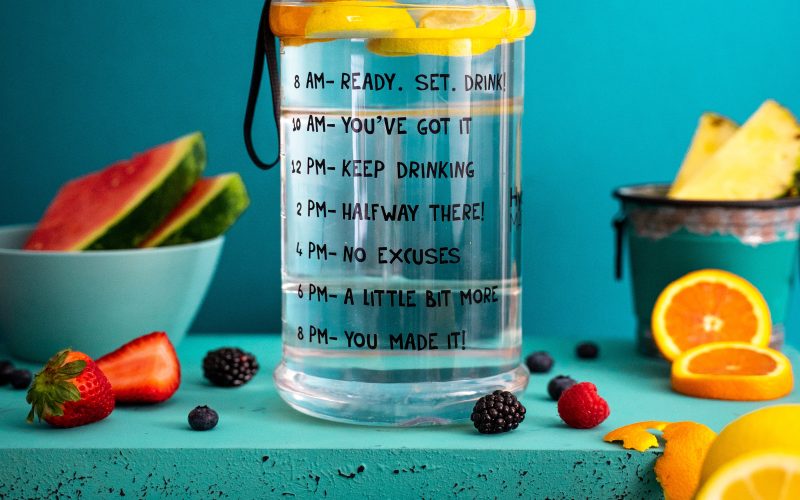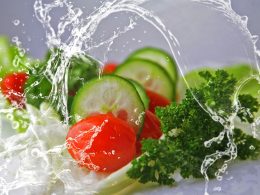Introduction:
We’ve all heard the advice to “drink plenty of fluids” for optimal hydration, but what does that really mean? How much water do we need to drink, and are fluids the only source of hydration? In this article, we delve into the science of hydration, debunking common myths and providing practical guidance to ensure you stay properly hydrated.
Understanding the Importance of Hydration:
Hydration is vital for our overall health and well-being. Water plays a crucial role in numerous bodily functions, including regulating body temperature, lubricating joints, aiding digestion, and maintaining healthy skin. When we don’t consume enough fluids, dehydration can occur, leading to fatigue, decreased cognitive function, and even more serious health complications.
Debunking the “8 Cups a Day” Myth:
The notion of needing to drink eight cups of water per day has been ingrained in our minds, but the truth is, the optimal water intake varies from person to person. Factors such as age, body size, activity level, and climate influence our hydration needs. While eight cups (approximately 64 ounces) can serve as a general guideline, it’s important to listen to your body’s thirst signals and adjust your fluid intake accordingly.
Beyond Water: Exploring Hydrating Fluids:
Contrary to popular belief, water is not the only source of hydration. Many foods and beverages contribute to our daily fluid intake. Fruits and vegetables with high water content, such as watermelon and cucumbers, can provide a significant hydration boost. Additionally, beverages like herbal tea, milk, and even certain sports drinks can contribute to our overall fluid intake. However, it is essential to be mindful of added sugars and caffeine content in certain beverages, as excessive consumption may have adverse effects.
Factors Affecting Hydration Needs:
Several factors influence our hydration needs, and understanding these variables is key to maintaining optimal hydration levels. Consider the following factors when evaluating your individual hydration needs:
- Physical Activity: Engaging in physical activity increases fluid loss through sweat, so it’s crucial to drink enough fluids before, during, and after exercise to replenish lost water and electrolytes.
- Climate and Environment: Hot and humid conditions can accelerate fluid loss through sweating, making it necessary to increase fluid intake to prevent dehydration.
- Illness and Medications: Certain illnesses, such as fever or gastrointestinal ailments, can increase fluid loss. Additionally, some medications may have diuretic effects, increasing the need for additional hydration.
- Pregnancy and Breastfeeding: Pregnant and breastfeeding women have higher fluid requirements due to the increased demands of their bodies. Consult with a healthcare professional to determine appropriate fluid intake during these periods.
Tips for Staying Hydrated:
Maintaining proper hydration doesn’t have to be a challenge. Here are some practical tips to help you stay hydrated throughout the day:
- Listen to Your Body: Thirst is your body’s way of signaling that it needs fluids. Pay attention to your thirst cues and drink when you feel thirsty.
- Carry a Water Bottle: Keep a reusable water bottle with you to encourage regular sips throughout the day. This way, you can easily track your fluid intake.
- Set Reminders: If you tend to forget to drink water, set reminders on your phone or use apps that can help you stay on track with your hydration goals.
- Eat Hydrating Foods: Incorporate water-rich fruits and vegetables into your meals and snacks to increase your overall fluid intake.
- Monitor Urine Color: The color of your urine can be an indicator of hydration. Aim for a pale yellow or straw-colored urine, which indicates adequate hydration.
Conclusion:
Hydration is essential for maintaining overall health and well-being. While the “drink plenty of fluids” advice holds true, it’s important to recognize that optimal hydration varies from person to person and depends on various factors. By listening to your body, incorporating hydrating foods, and considering individual needs, you can ensure that you stay properly hydrated. Remember, hydrating isn’t just about drinking water, but also about making smart choices regarding the fluids you consume.












